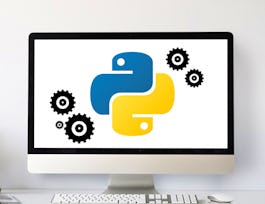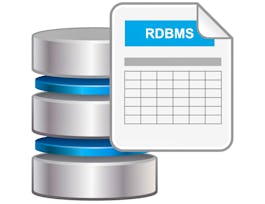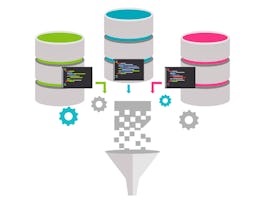Start your journey in one of the fastest growing professions today with this beginner-friendly Data Engineering course! You will be introduced to the core concepts, processes, and tools you need to know in order to get a foundational knowledge of data engineering. as well as the roles that Data Engineers, Data Scientists, and Data Analysts play in the ecosystem.


Introduction to Data Engineering
This course is part of multiple programs.
Taught in English
Some content may not be translated


Instructors: Rav Ahuja
127,708 already enrolled
Included with 
Course
(2,383 reviews)
94%
Recommended experience
What you'll learn
List basic skills required for an entry-level data engineering role.
Discuss various stages and concepts in the data engineering lifecycle.
Describe data engineering technologies such as Relational Databases, NoSQL Data Stores, and Big Data Engines.
Summarize concepts in data security, governance, and compliance.
Skills you'll gain
Details to know

Add to your LinkedIn profile
21 quizzes
Course
(2,383 reviews)
94%
Recommended experience
See how employees at top companies are mastering in-demand skills

Build your subject-matter expertise
- Learn new concepts from industry experts
- Gain a foundational understanding of a subject or tool
- Develop job-relevant skills with hands-on projects
- Earn a shareable career certificate


Earn a career certificate
Add this credential to your LinkedIn profile, resume, or CV
Share it on social media and in your performance review

There are 4 modules in this course
In this module, you will learn about the different entities that come together to form a modern data ecosystem and the role Data Engineers, Data Scientists, Data Analysts, Business Analysts, and Business Intelligence Analysts play in this ecosystem. You will learn what data engineering is and the key tasks in a data engineering lifecycle. You will also gain an understanding of the responsibilities of a data engineer, the skillsets they need in order to be successful, and what a typical day in the life of a data engineer looks like.
What's included
9 videos2 readings4 quizzes
In this module, you will learn about the data engineering ecosystem, the different types of data structures, file formats, sources of data, and the languages data professionals use in their day-to-day tasks. You will gain an understanding of several different types of data repositories such as relational and non-relational databases, data warehouses, data marts, and data lakes. You will learn about ETL and ELT processes, data pipelines, and data integration platforms. You will also gain an understanding of what big data is, and the tools used for processing and storing big data. At the end of this module, you will be guided to create an IBM Cloud account, and provision an instance of IBM Db2.
What's included
18 videos4 readings6 quizzes1 app item3 plugins
In this module, we will walk you through the data engineering lifecycle. You will learn about the architecture of a data platform, factors for selecting and designing data stores, and the different facets of security as it applies to data platforms and data lifecycle management. You will also learn about the process, steps, and tools used for gathering, importing, wrangling, and querying data. You will gain an understanding of performance monitoring and the steps you can take to troubleshoot performance issues. We will also talk about governance regulations, why we need them, and how technology enables compliance to regulations. During the course of this module, you will be guided to load data from a CSV file into the IBM Db2 instance you created in the previous module. You will also be guided to explore your dataset using some basic SQL queries that will be provided to you.
What's included
10 videos5 readings8 quizzes2 app items2 plugins
In this module, you will learn about career opportunities in the field of Data Engineering and the different paths that you can take for getting skilled as a Data Engineer. At the end of the module, you will be presented with the final graded assignment which is divided into two parts. The first part of the final assignment includes a couple of quiz questions and the second part includes open-ended questions that will be reviewed and graded by a peer.
What's included
6 videos2 readings3 quizzes1 peer review1 plugin
Recommended if you're interested in Data Management
Why people choose Coursera for their career




Learner reviews
Showing 3 of 2383
2,383 reviews
- 5 stars
79.89%
- 4 stars
16.31%
- 3 stars
2.25%
- 2 stars
0.45%
- 1 star
1.08%
New to Data Management? Start here.

Open new doors with Coursera Plus
Unlimited access to 7,000+ world-class courses, hands-on projects, and job-ready certificate programs - all included in your subscription
Advance your career with an online degree
Earn a degree from world-class universities - 100% online
Join over 3,400 global companies that choose Coursera for Business
Upskill your employees to excel in the digital economy
Frequently asked questions
Access to lectures and assignments depends on your type of enrollment. If you take a course in audit mode, you will be able to see most course materials for free. To access graded assignments and to earn a Certificate, you will need to purchase the Certificate experience, during or after your audit. If you don't see the audit option:
The course may not offer an audit option. You can try a Free Trial instead, or apply for Financial Aid.
The course may offer 'Full Course, No Certificate' instead. This option lets you see all course materials, submit required assessments, and get a final grade. This also means that you will not be able to purchase a Certificate experience.
When you enroll in the course, you get access to all of the courses in the Certificate, and you earn a certificate when you complete the work. Your electronic Certificate will be added to your Accomplishments page - from there, you can print your Certificate or add it to your LinkedIn profile. If you only want to read and view the course content, you can audit the course for free.
If you subscribed, you get a 7-day free trial during which you can cancel at no penalty. After that, we don’t give refunds, but you can cancel your subscription at any time. See our full refund policy.





